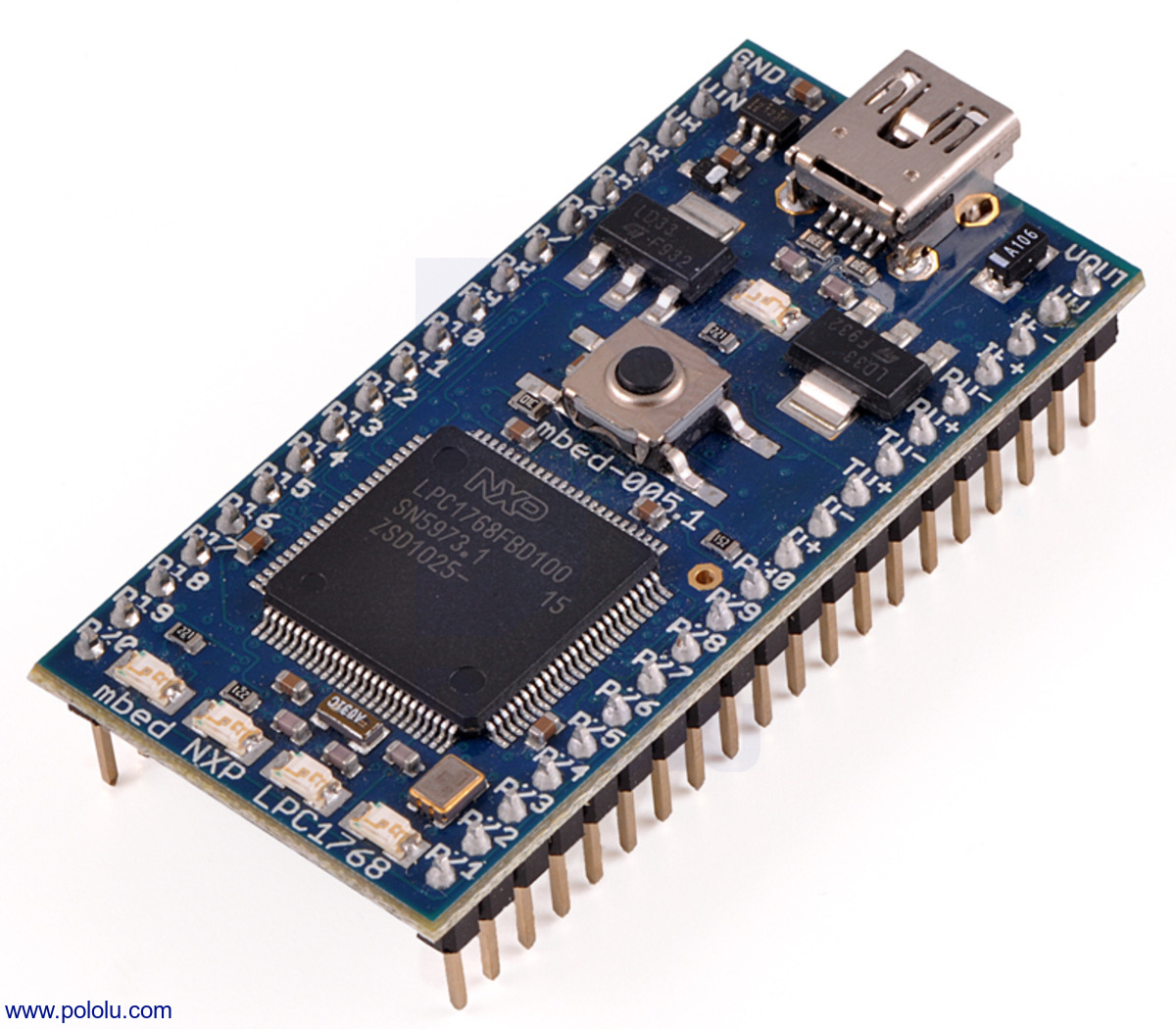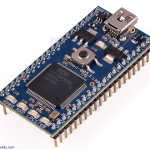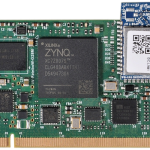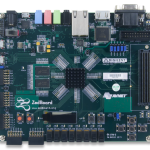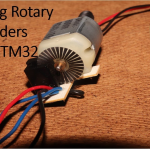The mBed microcontroller, developed by ARM, has long been a favored platform for those delving into microcontroller development. Launched in 2009, the mBed platform was designed to provide an accessible and user-friendly environment, particularly for programming ARM microcontrollers. It quickly positioned itself as a competitor to the well-known Arduino IDE, appealing particularly due to its support from various manufacturers and its ease of use. Unfortunately, as announced, the mBed microcontroller will reach its end-of-life in July 2026, leading to concerns about the future of this open-source mBed project. As enthusiasts weigh the implications of this decision, it’s worth considering how the mBed microcontroller’s legacy will compare to the burgeoning success of alternative platforms.
The advent of the mBed microcontroller marked a significant moment in microcontroller innovation, especially for users seeking alternatives to existing systems. This accessible development platform, based on ARM architecture, aimed to simplify programming and foster a lively community similar to what Arduino has achieved. However, as the microcontroller landscape evolved, the limitations inherent in the mBed platform began to overshadow its initial appeal. Despite ARM’s intention to offer a robust environment for developers, the upcoming discontinuation raises questions about the viability of such niche platforms in a competitive market. With the demise of the mBed system on the horizon, many are now reassessing the landscape of microcontroller options available to hobbyists and professionals alike.
The Legacy of mBed Microcontroller Development Platform
The mBed microcontroller development platform has carved out a unique niche since its inception in 2009. Designed specifically for ARM microcontrollers, mBed offered developers an accessible environment that emphasized ease of use and rapid prototyping. Unlike other development platforms, mBed utilized an intuitive web-based IDE that made it possible for hobbyists and experts alike to create projects without the steep learning curve often associated with microcontroller programming. This significant focus on user-friendliness is what drew the attention of many in the maker community, though it ultimately faced challenges due to competition from platforms like Arduino.
Despite ARM’s impressive legacy in the microcontroller space, the mBed platform’s limitations, primarily its restriction to a single architecture, curtailed its adoption. While Arduino diversified its offerings to support a multitude of microcontroller types and user needs, mBed remained tethered to ARM chips. This single-architecture limitation may have hindered its growth in a rapidly expanding market. Now, as we approach its announced end-of-life in 2026, it’s essential to reflect on what mBed has contributed to the world of embedded systems and let’s consider how its open-source foundation might give it a second life through community-driven projects.
Comparing mBed and Arduino IDE: What Set Them Apart?
When comparing the mBed platform to the Arduino IDE, it’s clear that both have their strengths and weaknesses. The Arduino IDE excels in versatility, offering a broad range of supports across various microcontroller architectures, which has cemented its position as a favorite among hobbyists. mBed, on the other hand, was significantly focused on providing optimized development tools for ARM-based systems. Developers appreciated mBed’s ability to leverage speed and performance intrinsic to ARM microcontrollers, but its lack of cross-architecture support ultimately limited its user base. As enthusiasts explored the options available through Arduino’s expansive library, many found it difficult to maintain loyalty to mBed.
The differences in community support between the two platforms became more pronounced over time. Arduino benefitted from a thriving ecosystem of add-ons, libraries, and active forums where developers could share ideas and troubleshoot issues. In contrast, mBed struggled to maintain a similarly engaged user community. With the official support for mBed set to conclude in 2026, this landscape highlights significant challenges for those who may wish to continue utilizing the mBed environment for ARM microcontroller projects. Long-term, the ability of the open-source mBed initiative to gain traction among developers may depend on how well a supportive community can form around existing resources.
The Rise of Open-Source Alternatives to mBed
With mBed’s impending end-of-life, the conversation around open-source microcontroller platforms is gaining momentum. As developers seek alternatives that can fill the void left by mBed, several open-source projects are emerging as strong contenders. The ability to leverage community contributions allows these platforms to evolve rapidly and adapt to changing technology needs. Unlike proprietary solutions, open-source environments provide flexibility and the opportunity for collaboration, essential for advancements in the microcontroller space.
Projects such as PlatformIO or CircuitPython have already begun capturing the interest of those who previously favored mBed. These platforms not only support a variety of microcontroller architectures but also integrate smoothly with popular hardware like Raspberry Pi and Arduino. This adaptability may be crucial for hobbyists seeking to explore beyond just ARM chips. The future of open-source development in microcontrollers appears promising, as long as developers are willing to invest time into cultivating communities that rival mBed’s former user base.
Future Considerations for Developers Post-mBed
As the mBed microcontroller platform becomes a relic, it raises questions about how developers will adapt in this evolving landscape. The microcontroller community must now consider transitioning to platforms that not only provide adequate support but also foster innovation. While the closure of mBed serves as a reminder of the fast-paced nature of tech development, it can also be seen as an opportunity for enthusiasts to venture into platforms that prioritize user needs and community engagement.
In light of the existing alternatives, developers are encouraged to assess their own requirements and project goals. Whether they lean toward established titans like Arduino or explore newer open-source projects, the future is brimming with possibilities. Effective project planning and community involvement will be pivotal in ensuring that developers can continue to innovate, regardless of mBed’s impending closure.
What mBed’s Closure Means for the Future of Microcontroller Programming
The announcement of mBed’s closure marks a pivotal moment in the microcontroller programming framework. For many developers, especially those who relied on its features for ARM microcontroller projects, this development can lead to uncertainty. The effective discontinuation of its online resources means that developers must shift their focus to alternative platforms that not only align with their programming style but also provide ongoing support and resources.
The future of microcontroller programming may hinge on how quickly the community adapts to these changes. With many seasoned developers exploring new avenues in open-source alternatives, there lies a potential for innovative solutions to arise. It showcases the importance of resiliency and adaptability in a field where technology evolves at lightning speed. Emphasizing a commitment to sharing knowledge and resources will be key to navigating these uncharted waters.
Community Response to mBed’s End of Life
As mBed approaches its end, the growing conversation within the developer community is palpable. Many have taken to forums and social media to express their nostalgia for the platform that, despite its flaws, provided an accessible entry point into microcontroller development. Discussions around how to preserve existing projects and resources are at the forefront, with some advocates attempting to maintain a semblance of community support to assist those transitioning away from mBed.
Community-driven efforts often witness an uptick during periods of change or discontinuation of platforms. The collaboration among developers might lead to documentation projects, preservation of mBed resources, or even the innovative reuse of mBed boards in new projects. Engaging in these discussions will be vital to ensuring a smooth transition for many users and may lay the foundation for ongoing community spirit surrounding microcontroller programming.
Finding a New Approach After mBed
With the changing landscape of microcontroller development, developers must find a new approach to additive learning and innovation as mBed fades into history. As outlined in discussions about the future of ARM microcontrollers, it’s essential for programmers to re-evaluate their toolkit. What skills and tools will they need to thrive? Developers should familiarize themselves with alternative IDEs and platforms, explore emerging trends, and stay informed about best practices that can enhance their capabilities in a more diverse ecosystem.
The search for new microcontroller solutions doesn’t have to be daunting. By leveraging online communities, attending workshops, and participating in hackathons, developers can expand their skill set while finding new ways to engage with innovative projects. The movement to find the next representative of accessible microcontroller development is not just about replacing mBed; it’s about embracing a more varied, collaborative landscape that empowers all developers.
The Impact of ARM Microcontrollers Beyond mBed
Despite the closure of mBed, ARM microcontrollers continue to dominate the market due to their inherent efficiency and processing power. Many developers still recognize the importance of working with ARM-based systems and their wide scope of applications in fields such as IoT, robotics, and automation. As mBed becomes part of history, ARM’s presence will undoubtedly continue to shape the landscape of electronics development, offering new prospects for those looking to leverage these powerful devices.
Looking at this development through a broader lens shows that while individual platforms may rise and fall, the technology behind ARM microcontrollers remains a robust foundation for future innovation. Developers can capitalize on this unique architecture to craft solutions that drive technological advancement across industries. The challenge now lies in adapting existing skills to new platforms, making sure the legacy of ARM microcontrollers continues to thrive post-mBed.
Final Thoughts on the Transition from mBed
The impending closure of the mBed platform has left both a legacy and lessons for the microcontroller community. For many, it served as an introduction to ARM microcontrollers, but ultimately struggled to compete in a rapidly evolving technological landscape. With the shift toward new development platforms, it’s vital for developers to share insights and strategies that can make this transition smoother and more collaborative.
As we prepare for a microcontroller ecosystem without mBed, one thing is certain: adaptability, community support, and continuous learning will be paramount. By embracing new technologies and fostering learning environments, developers can continue to innovate and push the boundaries of what is possible with ARM microcontrollers and beyond. The spirit fostered by mBed may inform future endeavors, encouraging a robust and communal approach to microcontroller development.
Frequently Asked Questions
What is the mBed microcontroller platform, and why is it important?
The mBed microcontroller platform, developed by ARM, is an accessible development framework for creating embedded applications using ARM microcontrollers. It is important for its user-friendly interface and support for various ARM boards, which allow developers to easily prototype and build projects in a wide variety of applications.
What does the end-of-life announcement for mBed microcontroller mean for developers?
The end-of-life announcement for the mBed microcontroller indicates that the platform and its operating system will no longer be supported by ARM after July 2026. This means developers will not be able to create new projects through ARM’s infrastructure, although the mBed platform will remain available as an open-source project.
How does mBed compare to the Arduino IDE in microcontroller development?
mBed and Arduino IDE are both popular development environments for microcontrollers, but they target different architectures. While mBed focuses on ARM microcontrollers, offering ease of use in developing ARM-based projects, Arduino IDE is more versatile and supports a wide range of microcontroller architectures. As a result, Arduino has gained more popularity among hobbyists and professionals.
Will the open-source mBed platform continue to see community support after its official end-of-life?
While the mBed platform will remain open-source after its official end-of-life, the level of community support is uncertain. Given mBed’s historical usage among developers, especially in Hackaday projects, it is possible that a community could form around it, but its limited adoption compared to alternatives like Arduino might restrict its growth.
What are the challenges that the mBed microcontroller faced leading to its discontinuation?
The mBed microcontroller faced challenges primarily due to its limitation to a single architecture, which restricted its broader appeal compared to more versatile platforms like Arduino. Despite being launched in 2009 as a competitor, the sustained popularity of other environments, coupled with mBed’s specialized focus, contributed to its relatively lower adoption and eventual discontinuation.
What alternatives are available for developers looking for ARM microcontroller platforms?
Developers looking for alternatives to mBed can consider several other platforms that support ARM microcontrollers, such as PlatformIO, Arduino IDE, or even STM32-based development environments. These options provide robust features and broad community support, making them suitable choices for ARM microcontroller development.
What should I do with my existing projects on the mBed platform before it is discontinued?
Before the mBed microcontroller is officially discontinued in July 2026, it is advisable to back up all existing projects, migrate them to alternative platforms if necessary, and stay informed about the open-source community’s progress on mBed to ensure continuity in your development process.
How can the transition from mBed to another microcontroller development platform be managed effectively?
To manage the transition from mBed to another microcontroller development platform effectively, start by evaluating your project requirements and choose a suitable alternative, such as Arduino IDE or a PlatformIO-based solution. Familiarize yourself with the new environment, and gradually port your code and project files while testing for compatibility. Engage with the new platform’s community for support.
| Key Point | Explanation |
|---|---|
| End-of-Life Announcement | mBed will reach its end-of-life in July 2026, ceasing official support from ARM. |
| Open-Source Status | While it will no longer be supported, mBed will remain as an open-source project. |
| Launch Date | mBed was launched in 2009 to compete with the Arduino IDE for ARM chips. |
| Adoption Limitations | Limited to a single architecture, mBed did not achieve widespread success compared to competitors. |
| Comparison to Other Platforms | Similar platforms like Intel Edison have faced discontinuation; thus, mBed’s end is not unprecedented. |
| Community Support | There is uncertainty about whether the open-source mBed will gather a supportive community. |
Summary
The mBed microcontroller has been a significant platform in the ARM ecosystem since its inception in 2009. With its impending end-of-life in July 2026, it will mark a notable shift in the development landscape for microcontrollers. As it transitions to an open-source status, the future of community support and project development remains uncertain. Despite its initial promise, the limitations of a single architecture have contributed to its decline in popularity compared to more versatile platforms like Arduino. Developers and enthusiasts will need to adapt in light of these changes while considering alternative microcontroller options.

